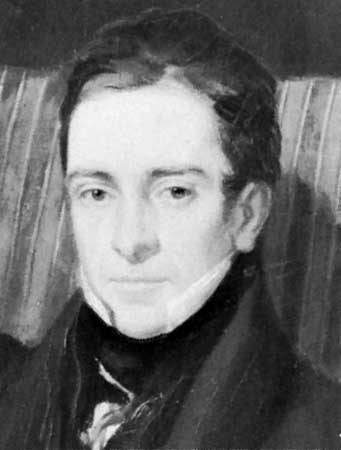Hood, Thomas
British poet
born May 23, 1799, London
died May 3, 1845, London
 English poet, journalist, and humorist whose humanitarian verses, such as “The Song of the Shirt” (1843), served as models for a whole school of social-protest poets, not only in Britain and the United States but in Germany and Russia, where he was widely translated. He also is notable as a writer of comic verse, having originated several durable forms for that genre.
English poet, journalist, and humorist whose humanitarian verses, such as “The Song of the Shirt” (1843), served as models for a whole school of social-protest poets, not only in Britain and the United States but in Germany and Russia, where he was widely translated. He also is notable as a writer of comic verse, having originated several durable forms for that genre.The son of a London bookseller, Hood became a “sort of sub-editor” of the London Magazine (1821–23) during its heyday, when its circle of brilliant contributors included Charles Lamb, Thomas De Quincey, and William Hazlitt. He later went on to edit The Gem, the Comic Annual, and Hood's Magazine. In 1827 he published a volume of poems strongly influenced by Keats, The Plea of the Midsummer Fairies. Several of the poems in it suggest that Hood might possibly have become a poet of the first rank, and it is known for the touching lyric "I Remember, I Remember." However, the success of his amusing Odes and Addresses to Great People (1825), written in collaboration with his brother-in-law, J.H. Reynolds, virtually obliged him to concentrate on humorous writing for the rest of his life. His most considerable comic poem, "Miss Kilmansegg and Her Precious Leg," first appeared in the New Monthly Magazine from October 1840 to February 1841. There is something sinister about Hood's sense of humour, a trait that was to reappear in the “black comedy” of the latter 20th century. His pages are thronged with comic mourners and undertakers, and a corpse is always good for a laugh. He was famous for his punning, which appears at times to be almost a reflex action, serving as a defense against painful emotion. Of his later poems, “The Song of the Shirt,” “The Lay of the Labourer” (1844), and “The Bridge of Sighs” (1844) are moving protests against social evils of the day—sweated labour, unemployment, and the double sexual standard.
Additional Reading
John Clubbe, Victorian Forerunner: The Later Career of Thomas Hood (1968); Laurence Brander, Thomas Hood (1963); John Cowie Reid, Thomas Hood (1963).
- Dolnośląskie
- Dolomieu, Dieudonné
- dolomite
- Dolomites
- dolomitization
- Dolores Huerta
- Dolores Ibárruri
- Dolores River
- dolphin
- Dolphy, Eric
- Domagk, Gerhard
- domain
- Dombes
- dome
- Domenichino
- Domenico Alberti
- Domenico Angelo
- Domenico Barberi, Blessed
- Domenico Beccafumi
- Domenico, Blessed Barberi
- Domenico Campagnola
- Domenico Cimarosa
- Domenico Fetti
- Domenico Fontana
- Domenico Ghirlandaio